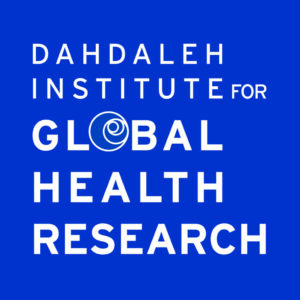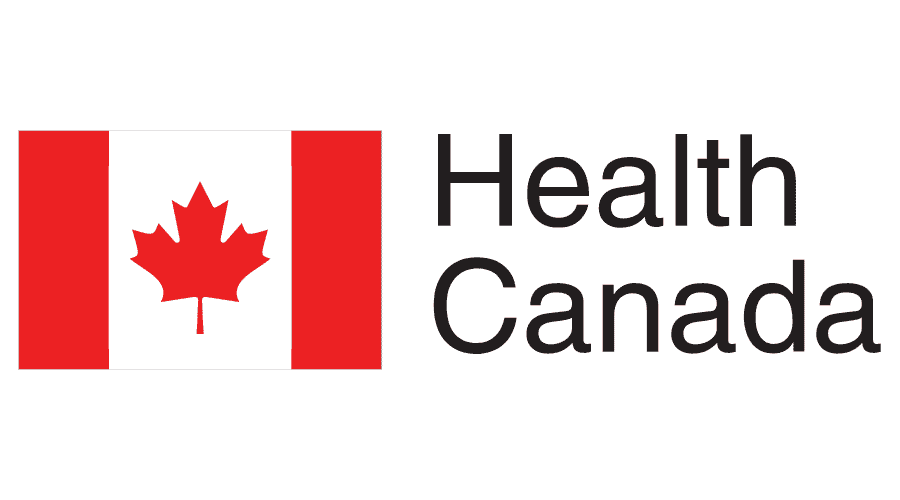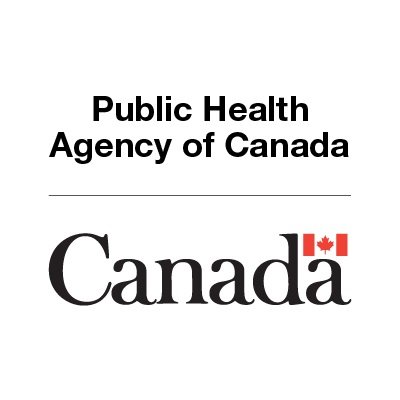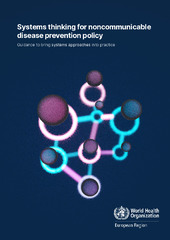Our Publications
Disease Prevention Policy and Systems Change
Systems thinking for disease prevention policy
Systems thinking for noncommunicable disease prevention policy
World Health Orgnization, 2022
The Manual on systems thinking for NCD prevention policy provides guidance on bringing a systems approach into practice and important insights to support using systems thinking in health issues such as NCD prevention. The Manual has specific examples of systems thinking approaches in practice, and information on important next steps for the use of systems thinking approaches in NCD prevention policy.
Read the manual here.
Lead author: Chloe Clifford Astbury – Corresponding author: Tarra Penney
Fact sheet: Systems thinking for noncommunicable disease prevention policy
World Health Organization, 2022
This factsheet aims to provide an overview of the Manual (Systems thinking for noncommunicable disease prevention policy) by introducing key concepts in systems thinking and examples of its approaches utilized in NCD prevention policy.
Read the fact sheet here.
Reviewers: Chloe Clifford Astbury Tarra Penney
Systems Thinking and Complexity Science Methods and the Policy Process in Non-communicable Disease Prevention: A Systematic Scoping Review
International Journal of Health Policy and Management, 2023
Given the complex determinants of non-communicable diseases (NCDs), and the dynamic policy landscape, researchers and policymakers are exploring the use of systems thinking and complexity science (STCS) in developing effective policies. The aim of this review is to systematically identify and analyse existing applications of STCS-informed methods in NCD prevention policy. STCS methods have the potential to generate tailored and dynamic evidence, adding robustness to evidence-informed policymaking, but must be accessible to policy stakeholders and have strong stakeholder ownership to build consensus and change stakeholder perspectives.
Read the paper here.
Lead author: Chloe Clifford Astbury – Corresponding author: Tarra Penney
Systems thinking and complexity science methods and the policy process in non-communicable disease prevention: a systematic scoping review protocol
Health Policy, 2021
Given the complex causal origins of many non-communicable diseases (NCDs), and the complex landscapes in which policies designed to tackle them are made and unfold, the need for systems thinking and complexity science (STCS) in developing effective policy solutions has been emphasised. While numerous methods informed by STCS have been applied to the policy process in NCD prevention, these applications have not been systematically catalogued. The aim of this scoping review is to identify existing applications of methods informed by STCS to the policy process for NCD prevention, documenting which domains of the policy process they have been applied to.
Read the protocol here.
Lead author: Chloe Clifford Astbury – Corresponding author: Tarra Penney
Systems Thinking and Evidence-Based Global Health Policy: Challenges and Opportunities for Global Health Research
Dahdaleh Institute for Global Health Research, 2024
Food insecurity, the emergence of zoonoses, anti-microbial resistance, and the related consequences of climate change are all major global health challenges, many with common drivers. Global health policy is an essential instrument for our collective efforts to reorient systems and address the underlying causes of these shared global health challenges. As global health researchers we want to ensure policy is informed by robust empirical evidence, but also that our approach has relevance and legitimacy – motivating us to think differently about how we do global health research. By drawing on experience conducting systems focused collaborative research, this seminar reflects on how the use of systems methods and approaches may enable us ask and answer questions that inform system change.
Read more about the seminar here and watch the recording here.
Presenter: Tarra Penney
Pandemic prevention and global governance
How can we prevent the next global pandemic?
York University, 2024
Recent epidemics and pandemics, such as Ebola and COVID-19 have emerged zoonotic spillover events, which is the transmission of pathogens from animals to people. These events are increasing as human activities expand into wildlife habitats. A One Health approach to deep prevention approach focuses on preventing outbreak of disease rather than spread. This evidence summary synthesizes findings across the project, providing key findings and recommendations on how to support One Health approaches to deep prevention.
Read the evidence summary here.
Content and design: Tarra Penney Kirsten Lee
Wildlife trade governance for pandemic prevention
York University, 2024
International and domestic responses to pandemics have primarily been reactionary, focused on outbreak detection, containment, and control measures. However, we also need to prevent future pandemics from occurring to promote human, animal, and environmental health. A deep prevention approach would aim to prevent outbreak of zoonotic disease from animals to humans. This evidence brief provides a summary of findings and recommendations about governance of pandemic prevention from an institutional perspective.
Read the evidence brief here.
Content and design: Mary Wiktorowicz Kirsten Lee
Dynamics of zoonotic spillover
York University, 2024
Many of our recent epidemics and pandemics are the result of what is called a zoonotic spillover event: the transmission of a pathogen from wildlife and livestock to people. Intervening to reduce the risk of zoonotic spillover is challenging, involving a complex array of social, ecological, economic and political factors. This evidence brief provides a summary of findings and recommendations about the system dynamics of zoonotic spillover, focusing on three case countries: China, Democratic Republic of Congo, and the Philippines.
Read the evidence brief here.
Content and design: Chloe Clifford Astbury Kirsten Lee
Wildlife policy, the food system and One Health: a complex systems analysis of unintended consequences for the prevention of emerging zoonoses in China, the Democratic Republic of the Congo and the Philippines
BMJ Global Health, 2025
In this study, we aimed to assess how unrecognised complexity and system adaptation can lead to policy failure, and how these dynamics may impact zoonotic spillover risk and food system outcomes. This study focused on three countries: China, the Democratic Republic of the Congo (DRC) and the Philippines. We combined evidence from a rapid literature review with key informant interviews to develop causal loop diagrams (CLDs), a form of systems map representing causal theory about system factors and interconnections. We analysed these CLDs using the ‘fixes that fail’ (FTF) systems archetype, a conceptual tool used to understand and communicate how system adaptation can lead to policy failure.
Read the paper here.
Lead author: Chloe Clifford Astbury – Corresponding author: Tarra Penney
Learning from over ten years of implementing the One Health approach in the Democratic Republic of Congo: A qualitative study
One Health, 2024
This study investigates OH institutionalization and implementation in the DRC, describes the process of OH decentralization, and identifies the opportunities and challenges of sustaining these efforts. We conducted a qualitative study based on literature, document review and key informant interviews. Strengthening leadership and coordination, advocating for domestic resource mobilization, and strengthening infrastructure for data collection and sharing while ensuring equity across sectors is essential for advancing the OH agenda and ensuring its efficacy.
Read the paper here.
Lead and corresponding author: Marc Yambayamba
Public awareness of One Health in China
One Health, 2023
Successfully implementing the One Health approach in policy will require active engagement from the public, which begs the question: how aware is the public of One Health? In this study, we examine the level and distribution of One Health awareness among the general public in China using a survey conducted in Beijing (n = 1820). Being aware of the term is associated with higher recognition of the core ideas. Policymakers and health practitioners should consider these findings when designing public awareness campaigns and educational initiatives to promote One Health principles.
Read the paper here.
Lead and corresponding author: Cary Wu
Policies to prevent zoonotic spillover: a systematic scoping review of evaluative evidence
Globalization and Health, 2023
This review outlines the state of the evaluative evidence around policies to prevent zoonotic spillover in order to guide policy decision-making and focus research efforts. Since we found that most of the existing policy evaluations target ‘downstream’ determinants, additional research could focus on evaluating policies targeting ‘upstream’ determinants of zoonotic spillover, such as land use change, and policies impacting infection intensity and pathogen shedding in animal populations, such as those targeting animal welfare.
Read the paper here.
Lead author: Chloe Clifford Astbury – Corresponding author: Tarra Penney
Carving the meat at the joint: The role of defining how animals are viewed and treated in the governance of (re-)emergent pandemic zoonoses in international law
Law & Policy, 2023
We develop a descriptive conceptual taxonomy to elucidate and map out how the status and evaluative stance taken toward animals can lead to shaping human-animal relationships by structuring the nature of their interactions and disposes us to adopt governance approaches that seek to regulate human–animal relationships in particular ways. This paper concludes by highlighting some implications surrounding the fragmented conceptualization and practice around how animals are viewed and treated for the future of international legal governance of pandemic zoonoses.
Read the paper here.
Lead and corresponding author: Adrian M. Viens
Global governance for pandemic prevention and the wildlife trade
The Lancet Planetary Health, 2023
We consider the current institutional landscape for pandemic prevention in light of ongoing negotiations of a so-called pandemic treaty and how prevention of zoonotic spillovers from the wildlife trade for human consumption could be incorporated. We argue that such an institutional arrangement should be explicit about zoonotic spillover prevention and focus on improving coordination across four policy domains, namely public health, biodiversity conservation, food security, and trade. We posit that this pandemic treaty should include four interacting goals in relation to prevention of zoonotic spillovers from the wildlife trade for human consumption: risk understanding, risk assessment, risk reduction, and enabling funding.
Read the paper here.
Lead and corresponding author: Ed Gallo-Cajiao
Policies to prevent zoonotic spillover: protocol for a systematic scoping review of evaluative evidence
BMJ Open, 2022
The aim of this review is to identify evaluations of public policies that target the determinants of zoonotic spillover, examining approaches taken to evaluation, choice of outcomes measures and evidence of effectiveness.
Read the paper here.
Lead author: Chloe Clifford Astbury – Corresponding author: Tarra Penney
One Health and pandemic prevention in practice: Is the global south leading innovation?
Oral at Geneva Health Forum, 2024
A ‘deep prevention’ approach, focused on looking upstream at dynamics within animal populations and ecosystems, may reduce the risk of spillover events. Wildlife are a key source of pathogens involved in zoonotic spillover. Policy and governance that impacts wildlife may therefore impact emerging zoonoses. A One Health perspective may be useful in this context, emphasising collaboration across sectors and governance levels and coordinated policy action. In this study, we aimed to understand the global governance network focused on wildlife and emerging zoonoses, as well as identifying complex dynamics and system adaptation driving spillover events of wildlife origin in three case study countries: China, the Philippines and the Democratic Republic of the Congo (DRC).
View the event here.
Presenter: Tarra Penney
Pandemic prevention and wildlife governance: a systems analysis in China, the Philippines and the DRC
Poster presentation at Geneva Health Forum, 2024
Policy and governance that impacts wildlife may therefore impact emerging zoonoses. In this study, we aimed to understand the complex dynamics and system adaptation driving spillover events of wildlife origin in three case study countries: China, the Philippines and the Democratic Republic of the Congo (DRC).
View the event here.
Presenter: Chloe Clifford Astbury
Public Awareness of One Health
Invited presentation at Dahdaleh Institute for Global Health Research, 2023
One Health is recognized as an increasingly important approach to global health. It has the potential to inform interventions and governance approaches to prevent future pandemics. Successfully implementing the One Health approach in policy will require active engagement from the public, which begs the question: how aware is the public of One Health?
View the recording here.
Presenter: Cary Wu

Food Systems and Zoonotic Disease: Mapping the role of wildlife in China, the Philippines and the Democratic Republic of Congo using causal loop diagrams
Oral presentation at International System Dynamics Conference, 2023
Understanding the underlying structure of the system driving zoonotic spillover events is key to effective intervention. The aims of the study were: to map the system driving increasing incidence of spillover of zoonotic pathogens from wildlife to humans; to identify examples of archetypal system behaviour driving this increasing incidence; and to generate hypotheses around the potential consequences, both intended and unintended, of policy interventions on zoonotic spillover events as well as food systems and their outcomes, including nutrition, livelihoods, food security and food culture.
Presenter: Chloe Clifford Astbury

Food system policies to prevent the spillover of zoonotic diseases: a systematic scoping review of evaluative evidence
Oral presentation at Global Food Governance Conference, 2021
The aim of this review was to identify evaluations of food system policies that target the determinants of zoonotic spillover, synthesising methodological approaches, outcome measures to evaluate the policies, and evidence of effectiveness. Our approach to identifying and analysing the literature was informed by a preventive medicine perspective and a One Health lens, acknowledging the inter-connectedness of human, animal and environmental health.
Presenter: Chloe Clifford Astbury

Evaluating policies and governance that reduce risk of zoonotic spillover
International Policy Ideas Challenge – 2022 Challenge Winner
The work focuses on the application of systems modelling to food system policy for the prevention of both communicable and non-communicable diseases
Read more here.
Presenter: Chloe Clifford Astbury

Policies to prevent the spillover of zoonotic diseases: protocol and preliminary results from a systematic scoping review of evaluative evidence
Oral presentation at International Public Policy Association, 2021
The aim of this review was to identify evaluations of policies that target the determinants of zoonotic spillover. Our approach to identifying and analysing the literature was informed by a preventive medicine perspective and a One Health lens, acknowledging the inter-connectedness of human, animal and environmental health.
Presenter: Chloe Clifford Astbury

Global governance and pandemic prevention: the role of policy, law and systems
Panel at International Public Policy Association, 2021
How have global or national governance approaches addressed pandemic prevention at the population level? How have these approaches been informed by evidence and considered the inherent complexities related to policy, law and/or systems?
This session aims to showcase examples from recent empirical or theoretical approaches to global or national governance related to the prevention of pandemics. Specifically, efforts that have addressed the complexity of policy, law and systems and those that have considered intended and unintended consequence toward the health of populations will be highlighted.
Read the abstract here.
Presenter: Tarra Penney
Advancing policy solutions for pandemic prevention: A multi-disciplinary evaluation of the governance of wildlife systems
Poster at Consortium of Universities for Global Health, 2021
The empirical evidence and knowledge generated will be integrated into a report and set of policy recommendations that will inform the development of a policy design and implementation toolkit for international organizations, national and local stakeholders who will be engaged throughout the research process. The broad purpose of this project is to evaluate the governance gap in stewardship of international wildlife trade and implications for food and health security by analyzing the intersection of global biodiversity, environmental, agricultural and public health governance systems.
Presenter: Tarra Penney


Evaluating the Governance of Emergent Pandemic Zoonoses: A systems and legal analysis of wildlife markets
Invited presentation at Dahdaleh Institute for Global Health Research and Global 1Health Network, 2020
Although mitigating the current pandemic is critically important, a governance response is needed to prevent future pandemics. We need actionable evidence that focuses on the regulation of wildlife trade from which SARS and SARS-Cov2 are believed to have emerged. Specifically understanding the social, legal and cultural dynamics that affect the regulation of wildlife markets in countries where zoonotic epidemics and pandemics emerged, including China, the Democratic Republic of the Congo and the Philippines.
Presenter: Tarra Penney
Deep prevention of anti-microbial resistance
Integrated surveillance systems for antibiotic resistance in a One Health context: a scoping review
BMC Public Health, 2024
Properly informed decisions to mitigate this threat require surveillance systems that integrate information on resistant bacteria and antibiotic use in humans, animals, and the environment, in line with the One Health concept. This article intends to fill this gap through a scoping review that analyses: (i) the organizational and functional characteristics of existing integrated surveillance systems for ABR; (ii) the socio-economic and political context in which they operate; and (iii) the levels of integration reached in these systems and their related outcomes.
Read article here
Lead author: Léo Delpy – Corresponding Author: Marion Bordier
Mapping food system factors influencing antimicrobial resistance: a causal loop diagram informed by a systematic umbrella literature review [Protocol]
OpenScience Framework, 2023
The aim of this umbrella review is to identify the evidence of associations between determinants of AMR that are situated in the food system. We then aim to synthesize the existing evidence in the form of a CLD, allowing these complex inter-relationships to be clarified.
Read protocol here
Lead author: Chloe Clifford Astbury – Corresponding Author: Tarra Penney

How does the food system influence antimicrobial resistance? A complex systems analysis in five countries
Poster presentation at Geneva Health Forum, 2024
The food system is a key contributor to the emergence and spread of antimicrobial resistance (AMR), with negative repercussions for human, animal and environmental health. In this analysis, we use a participatory approach to identify key food system factors that influence AMR, as well as the interconnections and dynamic relationships between them. We undertake this analysis in five case study countries (Canada, Hungary, the Netherlands, the Philippines and Senegal), spanning high-, middle- and low-income contexts, as well as different governance systems and policy environments.
Presenter: Chloe Clifford Astbury
Intersections between AI, One Health and non-communicable diseases

AI & NCD Prevention Policy: A systematic scoping review of empirical research and their considerations of ethics and equity
Canadian Association for Health Services and Policy Research Conference, Ottawa, 2024
Given the complex aetiology of non-communicable diseases (NCDs), governments and institutions are challenged with developing effective prevention policies. Artificial intelligence (AI) approaches represent a novel and rapidly growing set of tools with emerging applications in policy contexts. This has prompted concerns around ethics and equity in AI use. This review aims to understand how AI is used to inform and understand NCD prevention policy and identify how ethics and equity are considered in this field. AI-based research reported in peer-reviewed literature is mainly used by academics to understand the policy process rather than directly informing decision-making processes. Ethics and equity are seldom considered.
View event here
Presenter: Catherine Hu

Artificial intelligence and non-communicable disease prevention policy: preliminary findings from a systematic scoping review.
NSERC Undergraduate Student Research Conference, 2022
Though artificial intelligence (AI) has been widely used in clinical medicine and in the private sector, its applications to non-communicable disease prevention policy have been less extensively catalogued. In particular, gaps exist in the literature about how AI is used throughout the policy process, especially policies focused on the prevention of non-communicable diseases (NCD) at the population level. This study aimed to utilize a systematic scoping review methodology to understand how AI contributes to NCD prevention policy, including the stages of the policy process where AI is most frequently used.
Presenter: Urmi Sheth

Artificial intelligence and non-communicable disease prevention policy: preliminary findings from a systematic scoping review.
NSERC Undergraduate Student Research Conference, 2022
There is growing interest in the potential use of artificial intelligence (AI) as a policy tool. There is limited understanding about how AI is used throughout the policy process, especially policies focused on the prevention of non-communicable diseases (NCD) at the population level. This systematic scoping review aimed to understand how AI contributes to NCD prevention policy, including where AI is used most frequently in the policy process.
Presenter: Angel Conje
Global Food System Transition
Surveillance of food systems

Gap analysis of Food Security Framework and Indicators: Recommendations report
Report submitted to British Columbia Centre for Disease Control, 2024
Food security indicators are used to monitor variations and trends across the province using national, provincial, regional, and local data. This project consists of: (1) a gap analysis of the Food Security Framework and food security indicators; (2) deep dives of the literature to explore new or revised potential indicator categories and areas; and (3) a rapid literature review of systems approaches and novel data sources used in public health surveillance broadly. Given the complex nature of food security, there is an opportunity to explore the potential role and use of systems methods in surveillance, including a wide range of data sources, and how it can inform the interpretation of indicators in relation to each other.
Lead author: Kirsten Lee – Corresponding author: Tarra Penney

British Columbia Centre for Disease Control Food Security Indicators: Protocol for gap analysis
Report submitted to British Columbia Centre for Disease Control, 2024
Food security is an important determinant for the health and wellbeing of populations of British Columbians. This protocol describes the approach for a gap analysis of the Food Security Framework and food security indicators and a rapid literature review of systems approaches and novel data sources used in public health surveillance broadly.
Lead author: Kirsten Lee – Corresponding author: Tarra Penney

Toward a national-level surveillance framework for monitoring food and nutrition in Canada: Improving monitoring of food environments and food systems
Report submitted to Public Health Agency of Canada, 2024
Food and nutrition surveillance is a federal government priority in Canada, however, there is a critical need to advance current approaches by identifying indicators to monitor food environments and food systems. Food environments are key intervention points to support healthy eating, while food system activities influence the nutritional quality of the food supply. The objective of this project is to inform an update of a conceptual surveillance framework by identifying indicators for monitoring determinants of food environments and food systems.
Lead and corresponding author: Kirsten Lee

Food Security Framework and Indicators: Recommendations report
Invited presentation to British Columbia Centre for Disease Control, 2024
Food security indicators are used to monitor variations and trends across the province using national, provincial, regional, and local data. This presentation provides an overview of the approach and findings of a gap analysis of the Food Security Framework and food security indicators and a rapid literature review of systems approaches and novel data sources used in public health surveillance broadly. Discussions were focused on opportunities for multi-sectoral collaboration and collective action toward food security surveillance in British Columbia.
Presenter: Kirsten Lee

Updating the Food and Nutrition Surveillance System Framework
Invited presentation to Agriculture and Agri-Food Canada, 2024
Food and nutrition surveillance is a federal government priority in Canada, however, there is a critical need to advance current approaches by identifying indicators to monitor food environments and food systems. This presentation provides an overview of the approach taken to update a national-level surveillance to monitor food and nutrition surveillance in Canada. Findings and discussions were focused on agricultural indicators that can be used to better monitor food system impacts, as well as discussed opportunities for cross-sectoral collaboration between health and agriculture sectors.
Presenter: Kirsten Lee

Toward a national-level framework for food and nutrition surveillance in Canada: An umbrella review and environmental scan of indicators to monitor food environments and food systems
Poster presentation at International Society of Behavioural Nutrition and Physical Activity, 2023
Food and nutrition surveillance is a federal government priority in Canada, however, there is a critical need to advance current approaches by identifying indicators to monitor food environments and food systems. The objective of this project is to inform an update of a conceptual surveillance framework by identifying indicators for monitoring determinants of food environments and food systems. An umbrella review (scoping review of reviews) was conducted to determine the scope of available food and nutrition indicators. The findings of this review will inform the development of a conceptual surveillance framework to provide timely, reliable, and relevant evidence for policy and program development on chronic disease prevention and health promotion in Canada.
Presenter: Kirsten Lee

Advancing surveillance of eating behaviours, food environments, and food systems in Canada
Series of three invited presentation to the Food and Nutrition Surveillance System Working Group, Health Canada, 2022-2023
This series of presentations provided an overview of the approach and findings to update the Food and Nutrition Surveillance indicator framework. The first presentation focused on outlining the approach to the project, presenting the methods for an umbrella review and consultation survey to prioritize indicator areas. The second presentation shared early findings of the umbrella review and integrated feedback from the working group to guide development of the consultation survey. The final presentation presented a summary of findings and recommendations for the updated framework. Recommendations focused on multi-sectoral perspectives to better monitor food and nutrition impacts on health, environmental sustainability, and equity.
Presenter: Kirsten Lee

Advancing food and nutrition surveillance in Canada
Invited presentation to the Centre for Surveillance and Applied Research, Public Health Agency of Canada, 2022
Food and nutrition surveillance is a federal government priority in Canada, however, there is a critical need to advance current approaches by identifying indicators to monitor food environments and food systems. This project provided an overview of the approach to update a surveillance framework of indicators to monitor food and nutrition in Canada. Discussions focused on strategies to engage government departments in the project.
Presenter: Kirsten Lee
Corruption and exploitation of the food system

The role of corruption in global food systems: a systematic scoping review
Globalization and Health, 2024
The study investigates corruption in the global food system, a critical but understudied threat to food security, safety, and social equity. Five main types of corruption—bureaucratic, fraud, bribery, organized crime, and corporate political activity—were identified, affecting various aspects of the food system and harming governance, food security, and social equity. Effective solutions require strong governance, technological tools for corruption detection, and collaborative organizational strategies.
Read the full paper.
Lead author: Anastassia Demeshko – Corresponding author: Tarra Penney
The role of corruption in global food systems and the food system transition: protocol and preliminary results from a systematic scoping review.
Oral presentation at the Global Food Governance Conference, 2021
The study investigates corruption in the global food system,. Five main types of corruption—bureaucratic, fraud, bribery, organized crime, and corporate political activity—were identified, affecting various aspects of the food system and harming governance, food security, and social equity. Effective solutions require strong governance, technological tools for corruption detection, and collaborative organizational strategies.
Presenter: Anastassia Demeshko
Global food supply alignment
How supportive is the global food supply of food-based dietary guidelines? A descriptive time series analysis of food supply alignment from 1961 to 2013
SSM Population health, 2021
FAO/WHO have encouraged national governments to create food-based dietary guidelines (FBDGs) to support healthy diets. However, little is known about the extent to which food supply composition aligns with FBDGs, thereby structurally supporting or undermining population-level adherence. It is also unclear how this alignment has evolved over time. The aim of this study was to determine to what extent the global food supply aligns with FBDGs, and to examine historical trends.
Read the full paper.
Lead author: Chloe Clifford Astbury – Corresponding Author: Tarra Penney

















